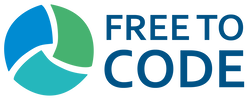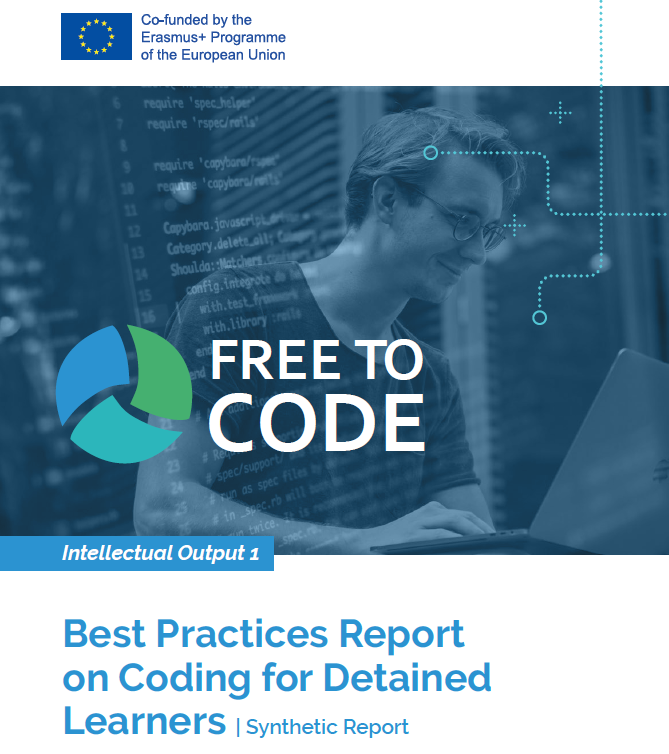Intellectual Output 1 - Best Practices Report on Coding for Detained LearnersLead by partner: European Digital Learning Network
The need to improve adult and detained learners’ digital competences is a top priority for the European educational systems. This Output delivers an up-to-date in-depth analysis of detained people in order to deeply explore the attitudes and gaps of these specific adult people in the partner countries as for the specific themes of coding and computational thinking. |
A survey will be developed which will prove to be necessary for several reasons:
- Provide relevant data to deliver policy recommendations to decision-makers;
- Identify differences and specific needs of the target group that may be relevant to the development of customised contents and tools;
- Detect divergences between countries and common issues that may be relevant to a European audience of adult detained learners.
|
|
Intellectual Output 2 - FREE to CODE Training PlatformLead by partner: European Digital Learning Network
This Output delivers a set of training materials accessible online via an interactive e-learning platform, all materials can be downloaded in order to make sure to meet all prisons rules in Europe. The platform includes contents, interactive exercises for understanding theory and programming games. In particular, the games push participants to develop apps, games, or simple tools, which they can use for presenting their profiles for future jobs opportunities and show to learners how practical computer programming can be. |
The E-learning platform also includes:
Some of the contents previously selected were:
- textbooks
- presentations
- videos
- case studies
- documents
- links
- articles
- useful tips
Some of the contents previously selected were:
- improving basic digital skills
- basics of computer programming
- computational thinking and related transversal skills
- everyday coding
|
The Free to Code project is co-financed by ERASMUS + programme ( KA2 - Strategic Partnerships for adult education). ERASMUS + is the new EU programme for Education, Training, Youth, and Sport (2014-2020). This website has been accomplished during the “Free to Code” project implemented with financial support of the European Commission by the Erasmus + Programme. This publication reflects the views only of the author. The Erasmus+ agency and the European Commission cannot be held responsible for any use which may be made of the information contained therein.
|



